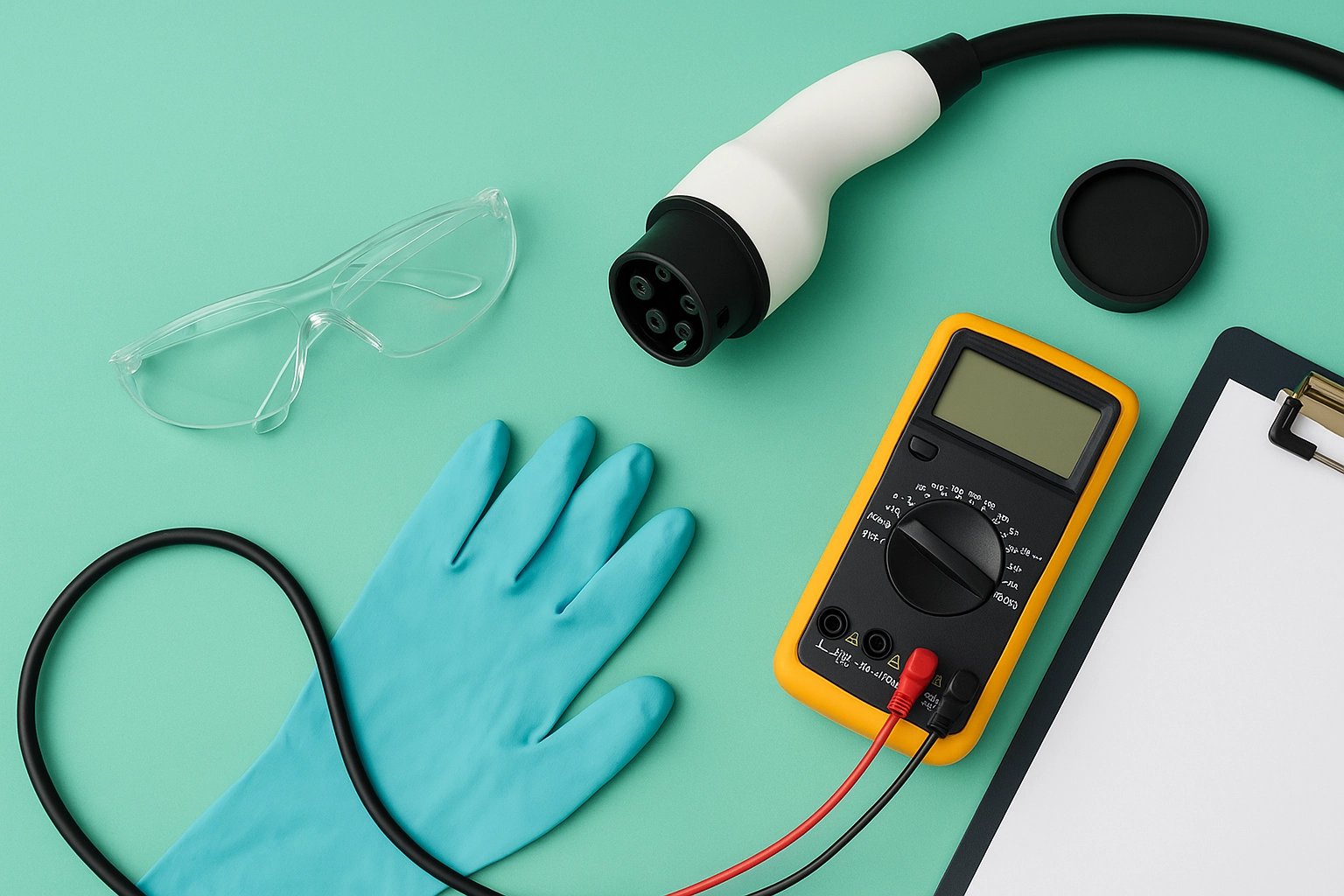IEEE 2030 7 EV Fast Charging Cybersecurity Testing
In the rapidly evolving landscape of electric vehicle (EV) fast charging, cybersecurity is a critical concern. The IEEE P2030™-2017 standard for plug-in electric vehicle conductive charging defines best practices and protocols for safe and secure electrical vehicle-to-grid interactions. This service focuses on ensuring compliance with IEEE 2030 7, which specifically addresses cybersecurity in the context of EV fast charging systems.
The IEEE P2030™-2017 standard is designed to protect against unauthorized access, data breaches, and other cyber threats that could compromise the integrity of vehicle-to-grid communication. This service ensures that your equipment meets these stringent requirements by providing comprehensive cybersecurity testing services tailored to the fast charging sector.
Our team of experts uses advanced tools and methodologies to simulate real-world cyber attacks and assess the resilience of your EV fast charging infrastructure against potential threats. By adhering to this standard, you can ensure that your products are not only compliant but also secure in an increasingly connected world.
The IEEE 2030.7 standard focuses on three main areas: secure communication, data integrity, and access control. Secure communication ensures that all data exchanged between the vehicle and charging station remains confidential and unaltered during transmission. Data integrity checks ensure that no unauthorized modifications are made to the data being transmitted or stored. Access control measures restrict unauthorized users from gaining access to sensitive information.
Our service includes a thorough review of your equipment's design, implementation, and operational processes to identify vulnerabilities and recommend improvements. We use industry-standard tools such as Nmap for network scanning, Wireshark for packet analysis, and Metasploit for penetration testing. Our team conducts both white-box and black-box testing approaches to ensure comprehensive coverage.
We work closely with your R&D engineers and compliance officers to understand the specific requirements of your product and tailor our tests accordingly. This collaboration ensures that we provide accurate and actionable insights into potential security risks. Our detailed reports include recommendations for mitigating identified vulnerabilities, ensuring continuous improvement in cybersecurity practices.
Scope and Methodology
Scope:
| Aspect | Description |
|---|---|
| Cybersecurity Assessment | Evaluation of the system's resilience against cyber threats. |
| Data Integrity Checks | Verification that all transmitted data remains accurate and unaltered. |
| Access Control Measures | Review of policies and practices ensuring only authorized users have access to sensitive information. |
Methodology:
- Initial assessment of the current system design and implementation.
- Identification of potential vulnerabilities through a combination of white-box and black-box testing approaches.
- Conducting penetration tests to simulate real-world cyber attacks.
- Evaluation of data integrity measures using specific tools for packet analysis.
- Review of access control policies and practices ensuring compliance with IEEE 2030.7 standards.
- Critical review of secure communication protocols in place.
- Compilation of detailed reports including recommendations for improvement.
Industry Applications
Applications:
| Application | Description |
|---|---|
| Manufacturer Compliance | Ensure that your EV fast charging equipment complies with the latest IEEE standards. |
| R&D Optimization | Identify and rectify potential vulnerabilities in your design early on to improve product quality. |
| Customer Confidence | Showcase your commitment to security, thereby enhancing customer trust and satisfaction. |
| Regulatory Compliance | Avoid costly penalties by ensuring compliance with relevant international standards like IEEE P2030™-2017. |
The IEEE 2030.7 standard is particularly applicable to manufacturers of EV fast charging equipment, R&D teams looking to enhance their product security, and companies seeking regulatory compliance. By providing robust cybersecurity testing services, we help you stay ahead in this rapidly evolving market.
Customer Impact and Satisfaction
- Enhanced Trust: Demonstrating compliance with IEEE 2030.7 helps build trust among customers, stakeholders, and regulatory bodies.
- Avoidance of Penalties: Ensures adherence to legal requirements, avoiding potential fines and sanctions.
- Better Product Quality: Early identification of security vulnerabilities leads to improved product reliability and performance.
- Competitive Edge: Secure products are more attractive to consumers who prioritize safety and privacy.
- Enhanced Reputation: A secure product portfolio enhances your brand reputation, attracting a wider customer base.
Our comprehensive approach ensures that you not only meet the regulatory requirements but also exceed customer expectations. By prioritizing cybersecurity early in the development process, we help you create products that are both compliant and secure.





